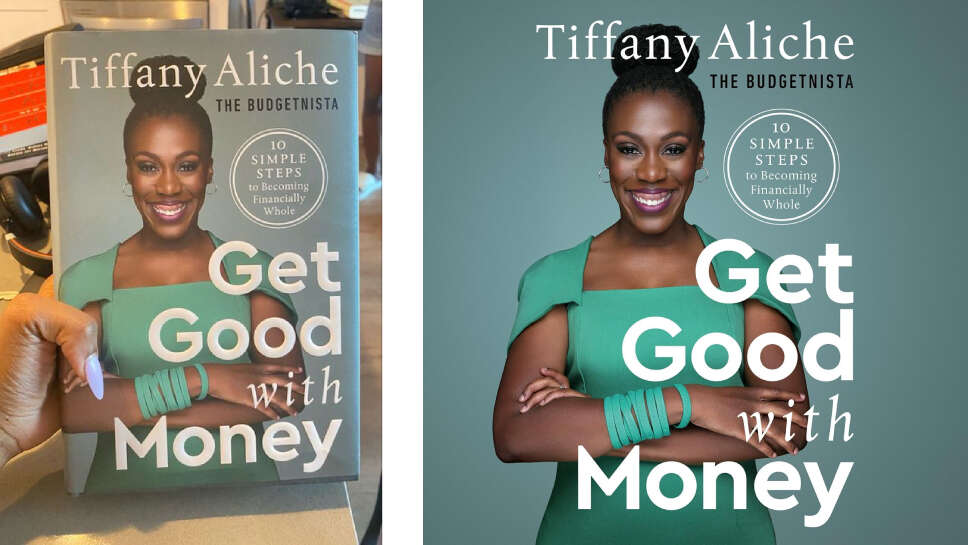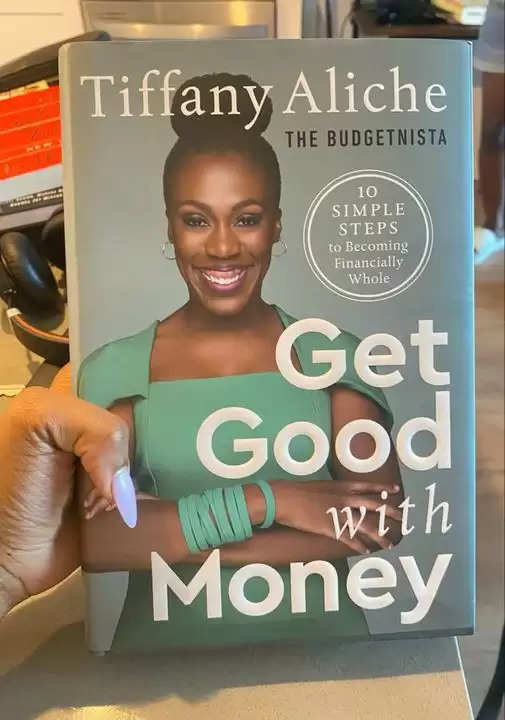7 Practical Money Lessons from Get Good with Money by Tiffany Aliche

Get Good with Money by Tiffany "The Budgetnista" Aliche provides doable tips to enable you to take charge of your money and create a safe financial future. Her book teaches seven crucial concepts that are broken out in a straightforward and conversational manner here:
1. Making a budget will help you to start managing your money. This entails keeping track of your monthly spending and income. Once you know where your money is going, you might find places like impulsive purchases or subscriptions you never use where you might be overspending. Knowing this allows you to put some of that money towards savings or other critical uses like debt pay-off. A budget is simply a clear plan for how you handle your money; it is not complicated.
2. Create an emergency fund since events in life are erratic. Having an emergency fund helps you handle unanticipated costs—such as medical bills or auto repairs—without depending on credit cards or loans, therefore providing you piece of mind. Try to save living expenses for three to six months. It need not be all at once; start modest and grow over time. Staying on target will depend on keeping this money in a separate account that is easily accessible but not overly enticing to raid.
3. Eliminate Debt: Particularly high-interest debt like credit card balances, debt can weigh heavily. Your financial situation will be much improved the sooner you pay off this loan. To get momentum, either pay off your smallest debt first (called the snowball approach) or pay off your highest-interest debt first (called the avalanche method). Whatever the approach, concentrate on one step at a time debt reduction; soon enough, you will begin to feel more financially free.
4. Invest in yourself; among your most prized assets are your knowledge and abilities. Investing in them—that implies returning to school, enrolling in a course, or learning something new—you raise your possibilities of future income generation. Investing in yourself will open chances to increase your income and advance your profession whether that means learning a new ability, broadening your knowledge, or even networking.
5. Your financial life is much influenced by your credit score. It influences everything, including loan interest rates as well as whether or not you are even qualified for a mortgage or auto loan. Pay your bills on time, keep your credit card balances low, and steer clear of opening too many new credit accounts in a short period if you want your credit to be strong. Being proactive about your credit will help to guarantee that it remains in good form, hence providing you better financial possibilities.
6. One of the finest strategies to remain driven and on target is to have well defined financial goals. Having a goal provides you something specific to aim for whether it's for a vacation, a house purchase, or retirement fund building. Divide these large objectives into smaller, doable steps—such as monthly savings of a specific amount—and acknowledge the progress towards the markers. This helps you to keep concentrated and experience success as you get closer to your objective.
7. Seek financial literacy: Learning about money need not be taxing. Spend some time learning about personal finance—by books, podcasts, or web seminars. You will feel more competent to make wise selections the more educated you are. Financial literacy clarifies concepts including credit, retirement planning, budgeting, and investment. It provides the means to control your finances and design the life you desire.
These financial life lessons from Get Good with Money inspire you to take control. Financial stability and success are yours if you budget, create an emergency fund, pay off debt, invest in yourself, know your credit, create goals, and always be learning. Every action you take now will pay off greatly down road, thereby helping you create a strong financial foundation and lead a more confident, stress-free life.

--
Thanks for reading..
You Might Also Like: How Money Works: Key Lessons for Financial Freedom and Success
